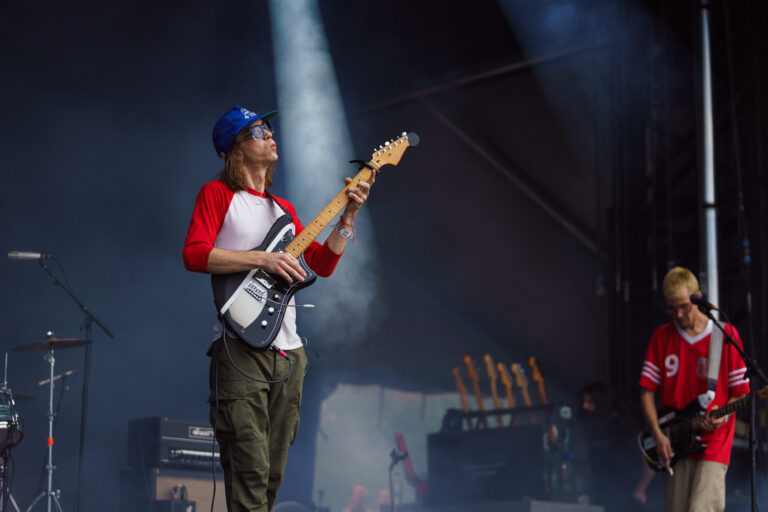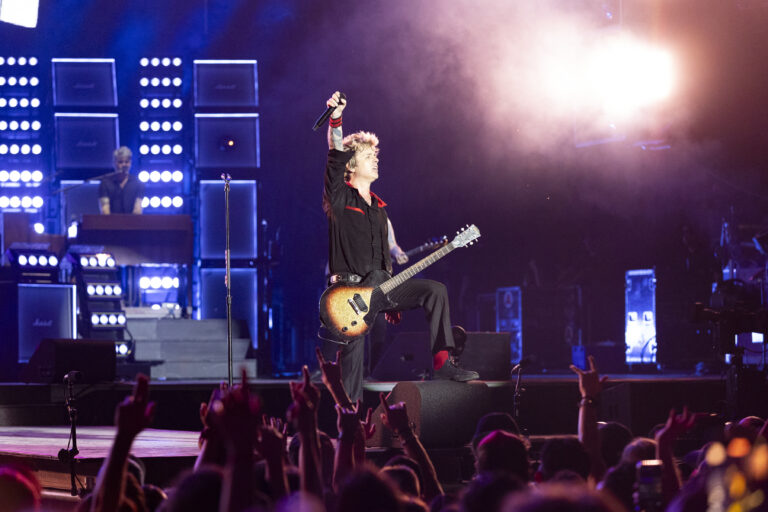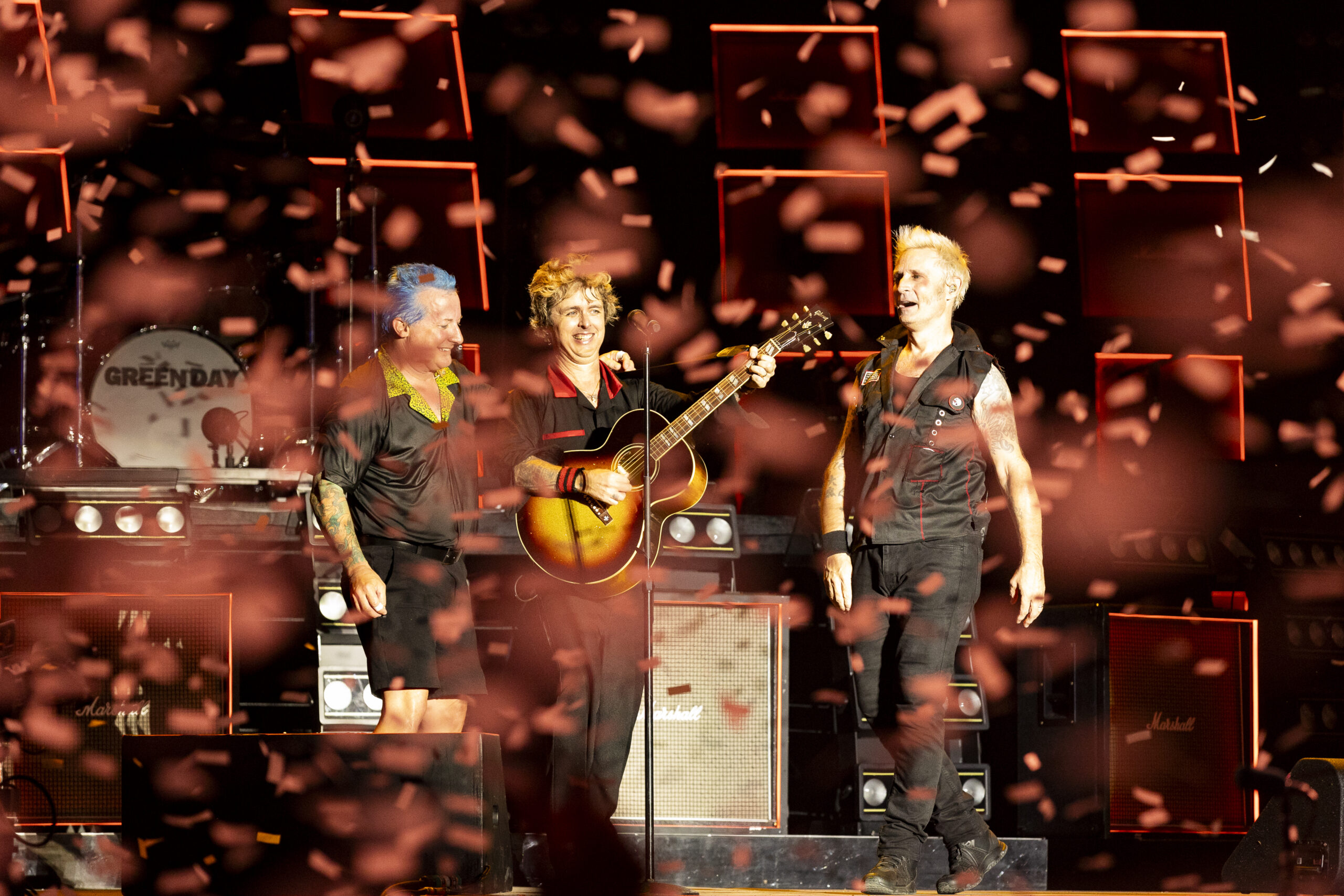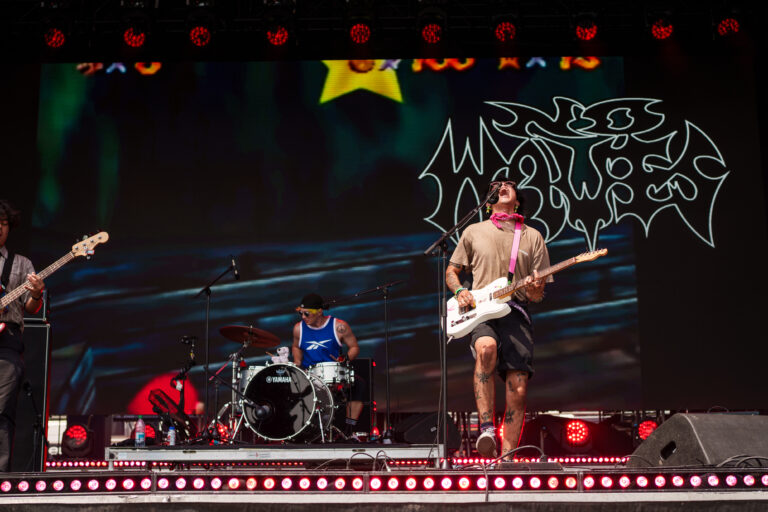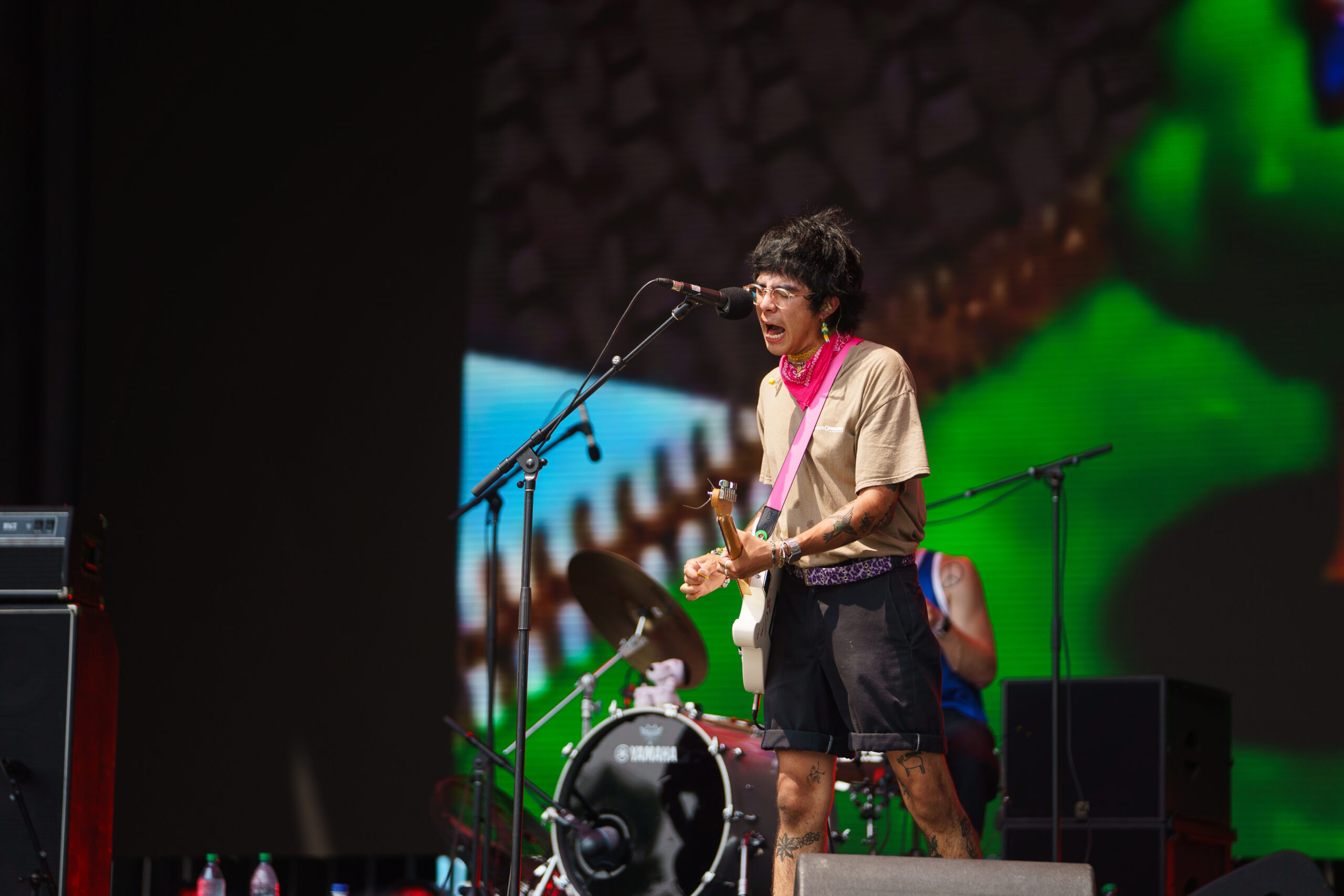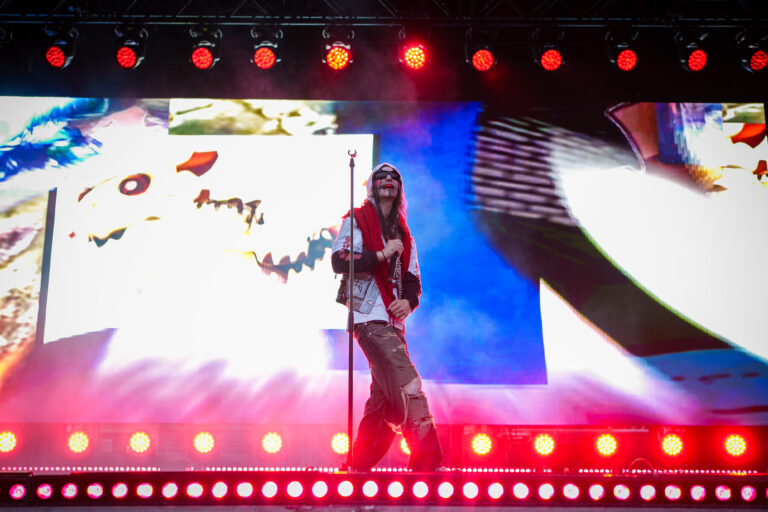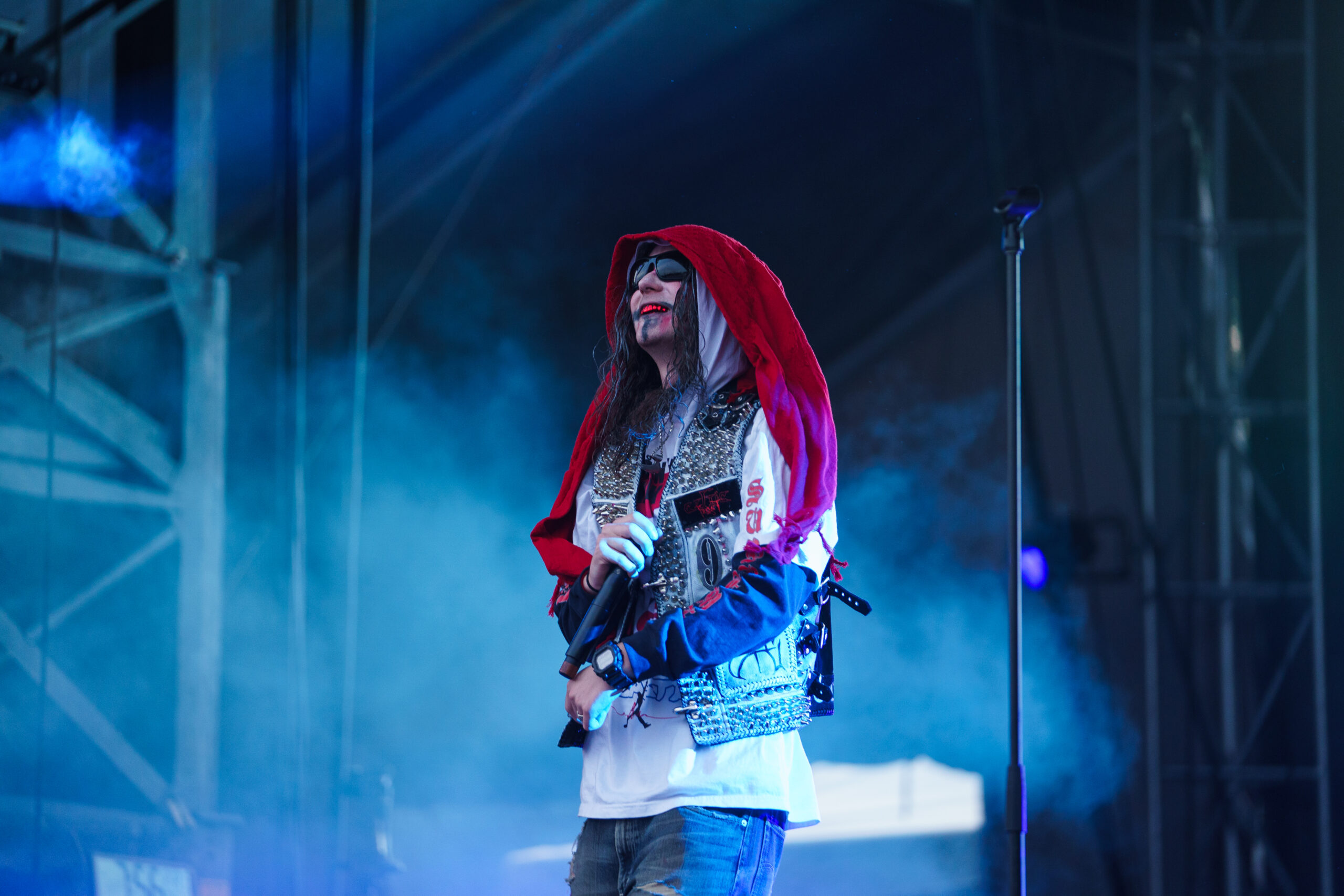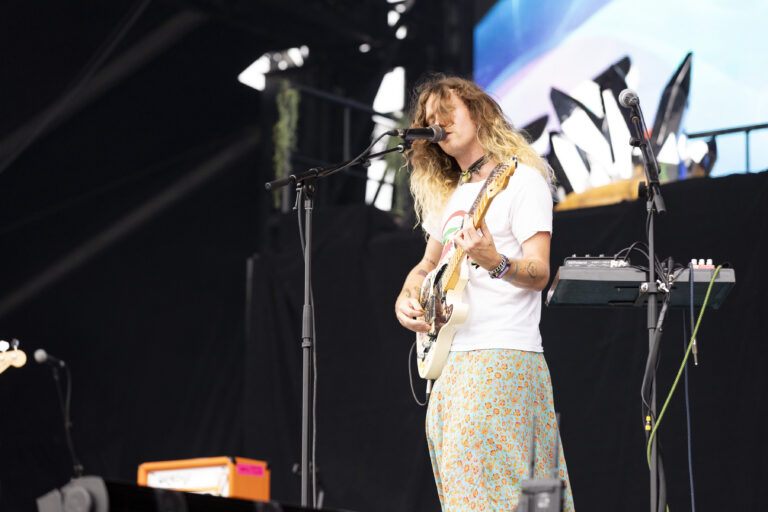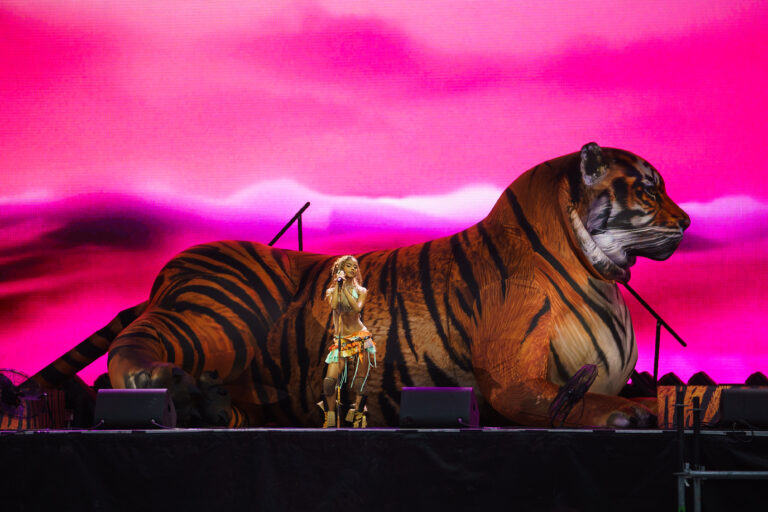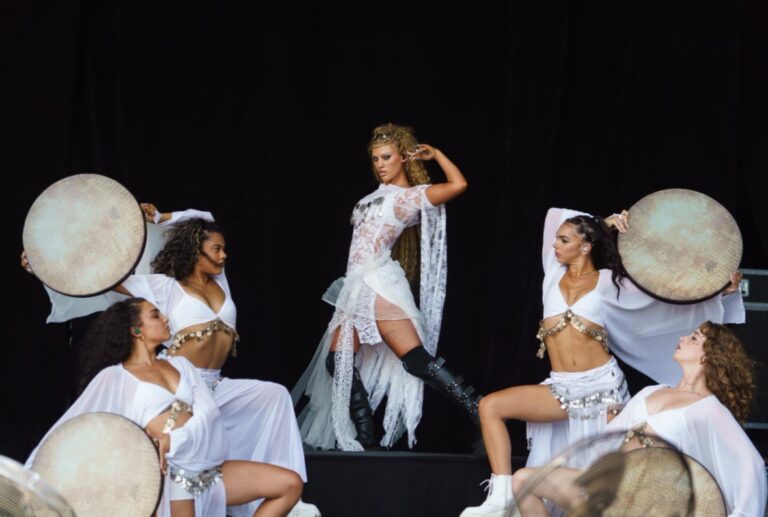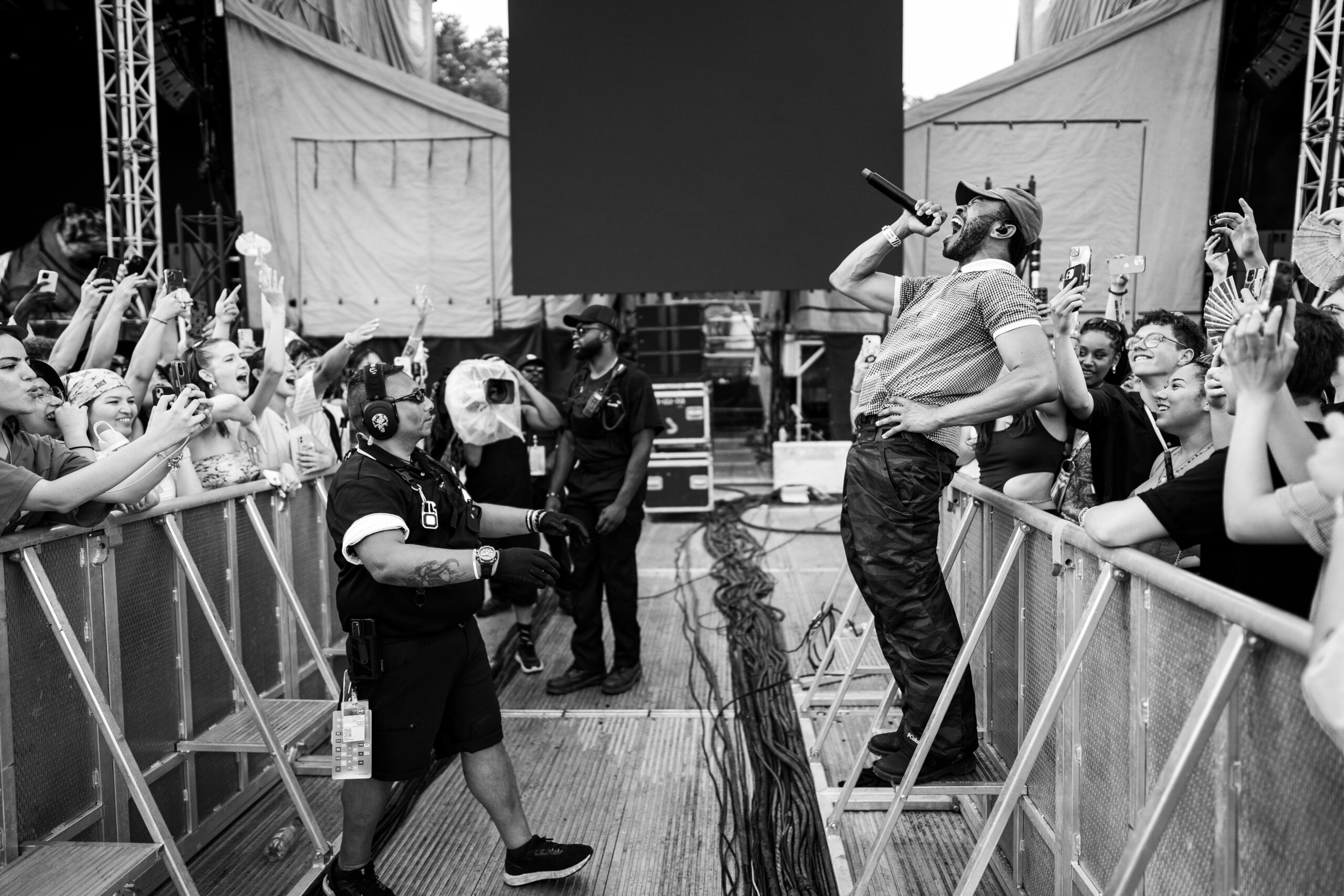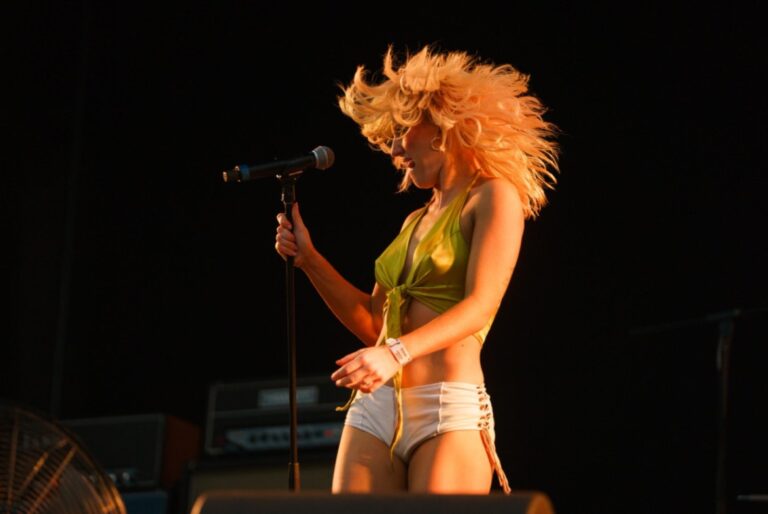I think Chappell Roan is about to become one of the most successful musicians of all time, and this summer will be the point we look back on as the moment she caught fire. I arrived at the mainstage a full 30 minutes before Roan’s scheduled start time, and was surprised to find myself completely and utterly late. Before long, I was lost in the throng, some 30,000 people all pushing towards the front, cheering at nothing as the electric charge of Roan’s imminent appearance climbed and climbed.
When Chappell Roan and the band took the stage, the sound was deafening. Dressed in a stunning, drag-inspired fairy outfit, Roan wears the pop-star persona as if she was made for it. And from the very first song to the last, 30,000 people screamed every single word. Cleverly, most of the straightforward lyrics were displayed behind her, which means that I—as someone who had never listened to an entire Chappell Roan song in my life—can’t stop singing the hooks to “Good Luck, Babe!” and “HOT TO GO!” for the life of me.

We were like lemmings headed for the cliff. Again and again, people collapsed from the heat around me. One person next to me spent more than five minutes on the ground before finally getting medical attention. When she got back to her feet, I assumed she’d be headed to the exit. But no—she got right back to dancing and screaming her heart out. We might expect this lack of self-preservation from someone who’s been wearing a diaper at the front of the crowd for the last four hours, but we were nowhere near the stage. The show was simply that unmissable.
It’s hard to describe what makes Chappell Roan so completely phenomenal. Perhaps it’s her incessant energy as she bounces, crawls, and glides across the stage. Perhaps it’s the mostly unsung but utterly exceptional skills of her band. Maybe it’s Roan’s electrifying singing voice soaring over some of the most irresistible pop songs I’ve ever heard. She’s a sensation, a natural-born icon, and she put on one of the best shows I’ve seen in my entire life.
By now, I think we’re all ready to say goodbye to the last generation of pop stars. We’ve had more than enough millennial acts cram their boring songs about stupid men down our throats. If the crowd at Chappell Roan’s Osheaga set is anything to go by (and it most definitely is), we’re ready for hot tracks from weird queers. We’re ready for something more real, something in sync with the discordant world we live in, something that reaches out, grabs us by the throats, and makes a mess of us. “Lightning in a bottle” doesn’t even begin to describe Chappell Roan. She’s a nuclear bomb in a Birkin bag, and I can’t wait to see where she touches down next.
Photos By Tim Snow

